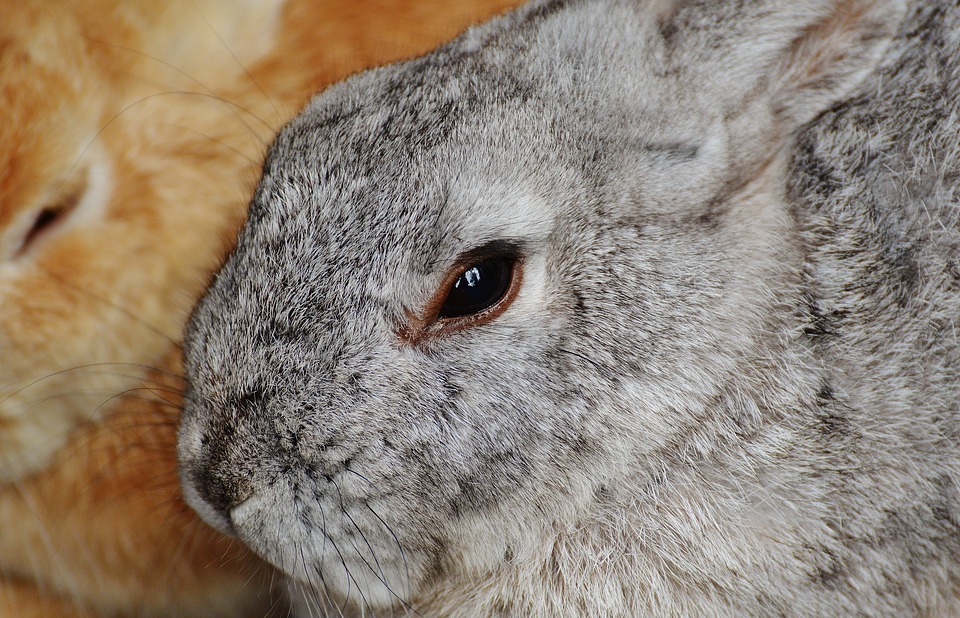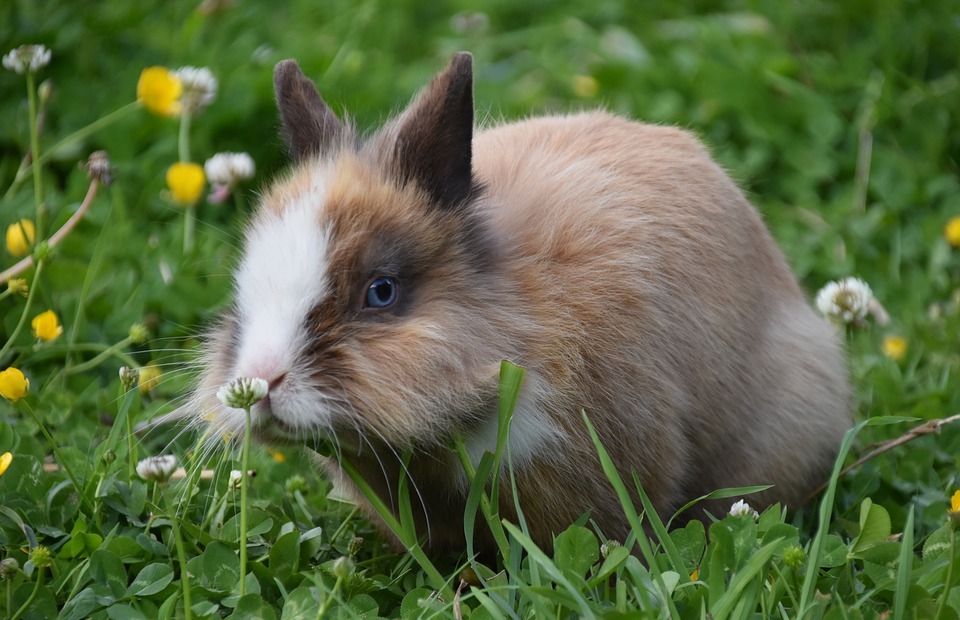This article explores the intricate question of whether rabbits can safely consume peanuts. It delves into the nutritional composition of peanuts, examines their potential benefits and risks for rabbits, and provides a comprehensive guide on safely introducing peanuts, if at all, into your rabbit's diet.
Part 1: The Nutritional Composition of Peanuts

Peanuts, often referred to as groundnuts, are a popular snack and ingredient in many cuisines. However, their nutritional content and potential impact on rabbits require careful examination.
1.1: Macronutrients in Peanuts
Peanuts are a notable source of:
- Protein: Peanuts contain a substantial amount of protein, comprising essential amino acids vital for muscle growth, tissue repair, and enzyme function in rabbits.
- Fat: Peanuts are rich in fats, primarily monounsaturated and polyunsaturated fats, which are considered healthier than saturated fats. While these fats can contribute to energy, their high concentration poses a risk for rabbit health.
- Carbohydrates: Peanuts provide carbohydrates, offering energy for rabbits. However, their high carbohydrate content, coupled with the high fat content, can lead to weight gain and associated health issues in rabbits, which are prone to digestive problems and obesity.
- Fibre: Peanuts contain a moderate amount of fibre. While fibre is crucial for digestion in rabbits, the high fat content in peanuts can offset this benefit and create digestive challenges.
1.2: Micronutrients in Peanuts
Peanuts also contain a range of vitamins and minerals, including:
- Vitamin E: Peanuts are a good source of Vitamin E, a potent antioxidant that protects cells from damage and supports immune function.
- Vitamin B3 (Niacin): Peanuts contain Niacin, crucial for energy metabolism, nerve function, and healthy skin.
- Magnesium: Peanuts offer a moderate amount of Magnesium, essential for muscle function, bone health, and energy production.
- Potassium: Peanuts contain Potassium, which plays a vital role in fluid balance and muscle contraction.
Part 2: The Digestive System of Rabbits

Understanding the rabbit digestive system is crucial to comprehending the potential impact of peanuts.
2.1: Herbivorous Digestion
Rabbits are herbivores, meaning their digestive systems are primarily adapted to break down plant material. Their long intestines and symbiotic gut bacteria are specifically designed to digest high-fibre diets, like hay and leafy greens.
2.2: Challenges with High-Fat Foods
Rabbits have a limited capacity to digest fats efficiently. The high fat content in peanuts can overwhelm their digestive system, leading to various digestive issues.
2.3: Caecotrophy
Rabbits practice caecotrophy, a unique digestive process where they consume soft faeces (caecotrophs) to obtain essential nutrients. However, high-fat foods can disrupt caecotrophy, further affecting nutrient absorption and overall health.
Part 3: Benefits of Peanuts for Rabbits
While peanuts are not considered a natural food source for rabbits, some potential benefits exist in limited quantities.
3.1: Protein Source
Peanuts can provide a supplemental protein source for rabbits, especially during periods of growth or recovery. However, high-quality hay and fresh vegetables should form the basis of a rabbit's diet.
3.2: Energy Boost
The fat and carbohydrates in peanuts can provide a short-term energy boost for rabbits who are underweight or require additional calories. But this should be a temporary measure, and the underlying cause of weight loss should be addressed.
3.3: Antioxidants
The antioxidants in peanuts may provide some protection against oxidative stress, promoting overall health. However, many other, more readily digestible sources of antioxidants exist in rabbit-appropriate foods.
Part 4: Risks of Peanuts for Rabbits
Despite the potential benefits, peanuts pose significant risks for rabbits, particularly due to their high fat content and digestive challenges.
4.1: Obesity and Liver Problems
The high fat content in peanuts can contribute to obesity in rabbits. Overweight rabbits are at a higher risk of developing liver problems, heart disease, and other health issues.
4.2: Digestive Issues
Peanuts are difficult for rabbits to digest, leading to bloating, gas, diarrhoea, and other gastrointestinal problems. The high fibre content, combined with the high fat, can cause digestive distress, particularly in rabbits with sensitive stomachs.
4.3: Mould and Aflatoxins
Peanuts are susceptible to mould growth, particularly if not stored properly. Mould can produce aflatoxins, potent toxins that are highly toxic to rabbits and can cause liver damage, immune system suppression, and even death.
4.4: Choking Hazard
Peanuts, especially whole peanuts or small pieces, can be a choking hazard for rabbits, especially smaller breeds.
4.5: Allergic Reactions
Rabbits, like humans, can experience allergic reactions to peanuts. Symptoms range from mild skin irritation to life-threatening anaphylaxis.
Part 5: Can Rabbits Eat Peanut Butter?
Peanut butter is often considered a treat for rabbits, but it poses even greater risks than peanuts due to its high fat, sugar, and salt content, as well as potential ingredients harmful to rabbits.
5.1: High Sugar and Salt Content
Many commercial peanut butters contain added sugar and salt, which are detrimental to rabbits' health, contributing to obesity, dental problems, and other health issues.
5.2: Xylitol Toxicity
Some peanut butters contain xylitol, an artificial sweetener that is highly toxic to rabbits and can be fatal, even in small amounts.
5.3: Choking Hazard
Peanut butter is sticky and can be difficult for rabbits to swallow, increasing the risk of choking.
5.4: Xylitol-Free Options
While some xylitol-free peanut butters exist, the high fat content and potential for other additives make peanut butter a risky choice for rabbits.
Part 6: Guidelines for Feeding Peanuts to Rabbits
If, despite the risks, you choose to offer peanuts to your rabbit, it is crucial to adhere to strict guidelines:
6.1: Moderation is Paramount
Peanuts should be given as an occasional treat in extremely small quantities, no larger than a fingernail, and only once or twice a week at most.
6.2: Choose High-Quality Peanuts
Select unsalted, roasted peanuts from a reputable source. Avoid raw peanuts, as they may contain harmful bacteria. Ensure the peanuts are free from any signs of mould or discoloration.
6.3: Remove Shells and Skins
Peanut shells and skins are indigestible and can cause digestive problems. Remove them before offering peanuts to your rabbit.
6.4: Supervise Your Rabbit
Always supervise your rabbit while they are eating peanuts to ensure they do not choke or eat too much.
6.5: Monitor for Reactions
Observe your rabbit closely for any signs of digestive upset, allergic reactions, or other health issues after consuming peanuts.
6.6: Consider Individual Needs
Not all rabbits are the same. Factors like age, breed, health status, and individual preferences should be considered when determining if peanuts are appropriate for your rabbit.
Part 7: Alternatives to Peanuts
There are many safer and healthier treats for rabbits, offering a variety of textures and flavors.
7.1: Fresh Vegetables
Fresh vegetables, like parsley, cilantro, bell peppers, spinach, and romaine lettuce, provide essential vitamins, minerals, and fibre, promoting digestive health and overall well-being.
7.2: Hay
Timothy hay is the foundation of a rabbit's diet, providing essential roughage for digestive health, dental wear, and a sense of fullness.
7.3: Commercial Rabbit Treats
Many commercial rabbit treats are specifically formulated to meet their nutritional needs, offering healthy and palatable alternatives.
Part 8: FAQs
8.1: Can baby rabbits eat peanuts?
No, baby rabbits should not be given peanuts. Their digestive systems are still developing, and peanuts are too high in fat and difficult to digest.
8.2: Can rabbits eat peanut shells?
No, peanut shells are indigestible and can cause digestive problems. Remove the shells before feeding peanuts to your rabbit.
8.3: Can rabbits eat peanut flour?
Peanut flour is a more digestible form of peanuts, but it should still be given in moderation and only after careful consideration of the risks and benefits.
8.4: How long can peanuts be stored?
Peanuts can be stored in a cool, dry place for up to six months. However, it is best to check the expiration date and discard any peanuts that appear stale or mouldy.
8.5: What should I do if my rabbit eats peanuts and gets sick?
If your rabbit shows signs of illness after eating peanuts, contact your veterinarian immediately. They can assess the situation and provide appropriate treatment.
8.6: Is it OK to give my rabbit peanuts as a reward for good behaviour?
While peanuts can be a tasty treat, they should not be used as a primary reward. It's best to use healthy alternatives, such as fresh vegetables or small amounts of hay, to encourage good behaviour.
Conclusion
While peanuts might offer some potential benefits for rabbits, the associated risks, including obesity, digestive problems, and the potential for allergic reactions, outweigh the rewards. It is essential to remember that rabbits are herbivores, and their diets should primarily consist of hay, fresh vegetables, and a limited amount of commercial rabbit treats. If you choose to offer peanuts, it is crucial to follow strict guidelines and monitor your rabbit for any signs of adverse effects. Remember, there are many safer and healthier treat options available, ensuring your rabbit thrives.
Everyone is watching
-

Do Rabbits Lay Eggs? (The Surprising Truth)
OTHER TYPES OF PETSThis article will unravel the common misconception that rabbits lay eggs, exploring the fascinating world of r...
-

Can Rabbits Eat Grapes? A Guide to Safe Rabbit Treats
OTHER TYPES OF PETSThis comprehensive guide will explore the safety and suitability of grapes for rabbits, providing detailed inf...
-

What's a Group of Rabbits Called? (A Comprehensive Guide)
OTHER TYPES OF PETSThis article delves into the fascinating world of rabbits, exploring the various terms used to describe a grou...
-

Predators That Hunt Rabbits: A Guide to Natural Enemies
OTHER TYPES OF PETSI've always been fascinated by the circle of life, that delicate dance between predator and prey. Growing up ...
-

Are Rabbits Nocturnal Animals?
OTHER TYPES OF PETSThe question of whether rabbits are nocturnal animals is a fascinating one, with a surprisingly complex answer...
